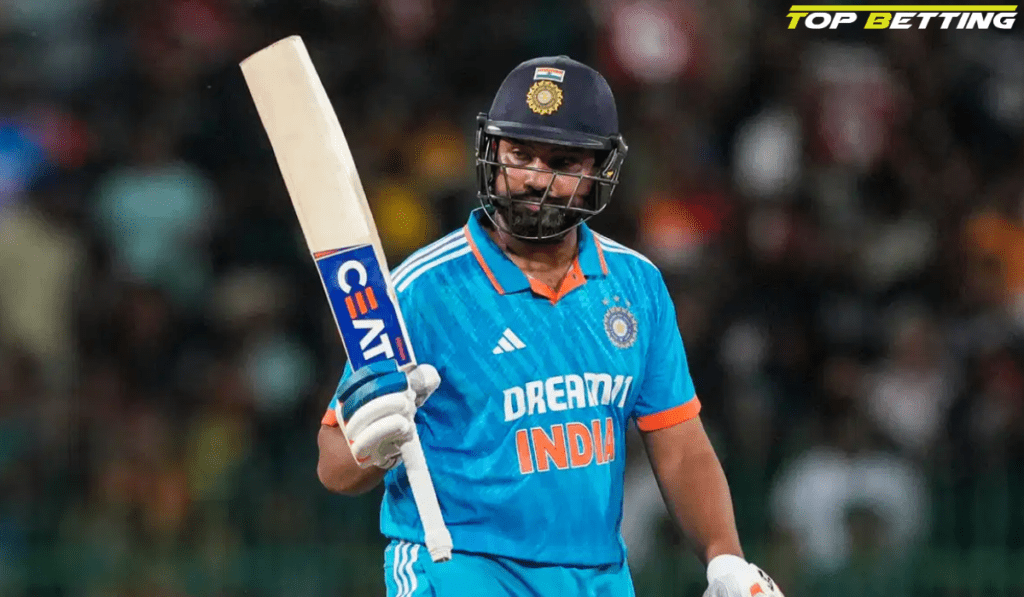
A Painful Defeat and Reflections on Batting: Rohit Sharma’s Post-Match Analysis
Colombo – Indian cricket team skipper Rohit Sharma expressed deep disappointment following India’s 32-run defeat against Sri Lanka in the second ODI, describing the loss as painful. Sharma highlighted the need for a serious discussion about the team’s performance, particularly focusing on their struggles during the middle overs. The defeat, marked by a collapse against spin bowling, underscored India’s ongoing challenges in adapting to subcontinental pitches.
India’s chase of a modest target of 241 unraveled as they were bowled out for 208, with Sri Lankan leg-spinner Jeffrey Vandersay playing a pivotal role by claiming six wickets. Sharma, addressing the post-match presentation ceremony, acknowledged the shortcomings and the need for improvement.
“When you lose a game, everything hurts. It’s not just about those 10 overs. You have to play consistent cricket, and we failed to do that. Little disappointed but these things happen,” said Rohit, reflecting on the overall performance. The skipper emphasized that while the team shouldn’t dwell too much on the defeat, the batting during the middle overs would certainly be a focal point in their discussions.
A Struggle Against Spin
The Indian team’s vulnerability against spin was glaringly exposed once again. Vandersay’s six-wicket haul was instrumental in dismantling the Indian batting lineup. The leg-spinner’s ability to exploit the conditions effectively troubled the Indian batsmen, who failed to build partnerships and maintain momentum during the chase.
“We weren’t good enough. Don’t want to look too much into how we played. But there’ll be talks about our batting in the middle overs,” Rohit added, acknowledging the critical phase where India lost the game. The Indian batsmen, despite a solid start, faltered in the middle overs, unable to counter Vandersay’s spin.
Adapting to Conditions
Sharma stressed the importance of adapting to the conditions, particularly the pitches in Sri Lanka, which have historically favored spin bowling. The Indian batsmen struggled to rotate the strike and build partnerships, resulting in a steady fall of wickets.
“You got to adapt to what’s in front of you. With left-right, we felt it’ll be easier to rotate strike. But credit to Jeffrey, he got six wickets,” said Rohit, acknowledging the challenge posed by the Sri Lankan spinner. The skipper emphasized the need for better adaptability and strategic batting to counter such situations in the future.
Rohit’s Approach and Reflections
Despite the setback, Rohit Sharma remained firm on not altering his approach to batting. The skipper, known for his aggressive style, scored a resilient 65, taking calculated risks. However, his dismissal added to India’s woes, leading to the eventual collapse.
“The reason I got 65 is because of the way I batted. When I am batting like that, there’s a lot of risks taken. If you don’t cross the line, you always feel disappointed. But I don’t want to compromise on my intent. We understand the nature of this surface; it gets really tough in the middle overs. You have to try to get as many as possible in the powerplay,” Rohit explained, highlighting his batting philosophy.
Sri Lanka’s Perspective
On the other hand, Sri Lankan skipper Charith Asalanka expressed satisfaction with his team’s performance. He acknowledged that the total of 240 was competitive given the conditions and lauded Vandersay’s match-winning spell.
“I was happy with the score. 240 was good enough. As a captain, I like this kind of problems. It was an unbelievable spell by him,” Asalanka stated, appreciating the bowler’s contribution. He also expressed a desire to contribute more with the bat in the upcoming matches, emphasizing his primary role as a batsman.
“I am mainly a batter, and I have to score runs. After that, I can bowl a few overs,” he added, indicating his commitment to improving his performance with the bat.
Vandersay’s Performance and Reflections
Jeffrey Vandersay, who emerged as the player of the match, shared his thoughts on the pressure and expectations coming into the game. Replacing the injured Wanindu Hasaranga, Vandersay felt the need to prove himself and deliver a match-winning performance.
“There was a lot of pressure coming into the side. I am coming out of a layoff. It is easier to take credit. But I want to give credit to the batters as well, who put 240 runs on board,” said Vandersay, humbly acknowledging the team effort.
The 34-year-old leg-spinner emphasized the significance of his first wicket, which boosted his confidence and set the tone for his spell. “There was assistance in the wicket, I was trying to hit the good areas. Once I got my first wicket, that built up my confidence,” he said, reflecting on his bowling strategy and mindset during the game.
Moving Forward
The defeat serves as a wake-up call for the Indian team, emphasizing the need for adaptability and strategic planning in their batting approach. The discussions and analyses following this game will likely focus on addressing the vulnerabilities exposed by Vandersay’s spin.
For Sri Lanka, the victory is a morale booster, highlighting their potential and the effectiveness of their bowling attack. As the series progresses, both teams will aim to learn from this game and make the necessary adjustments to perform better in the upcoming matches.
In conclusion, the second ODI between India and Sri Lanka showcased the unpredictability and challenges of cricket, where adaptability, strategy, and execution play crucial roles in determining the outcome. The reflections and learnings from this match will undoubtedly shape the strategies and performances of both teams in future encounters.












